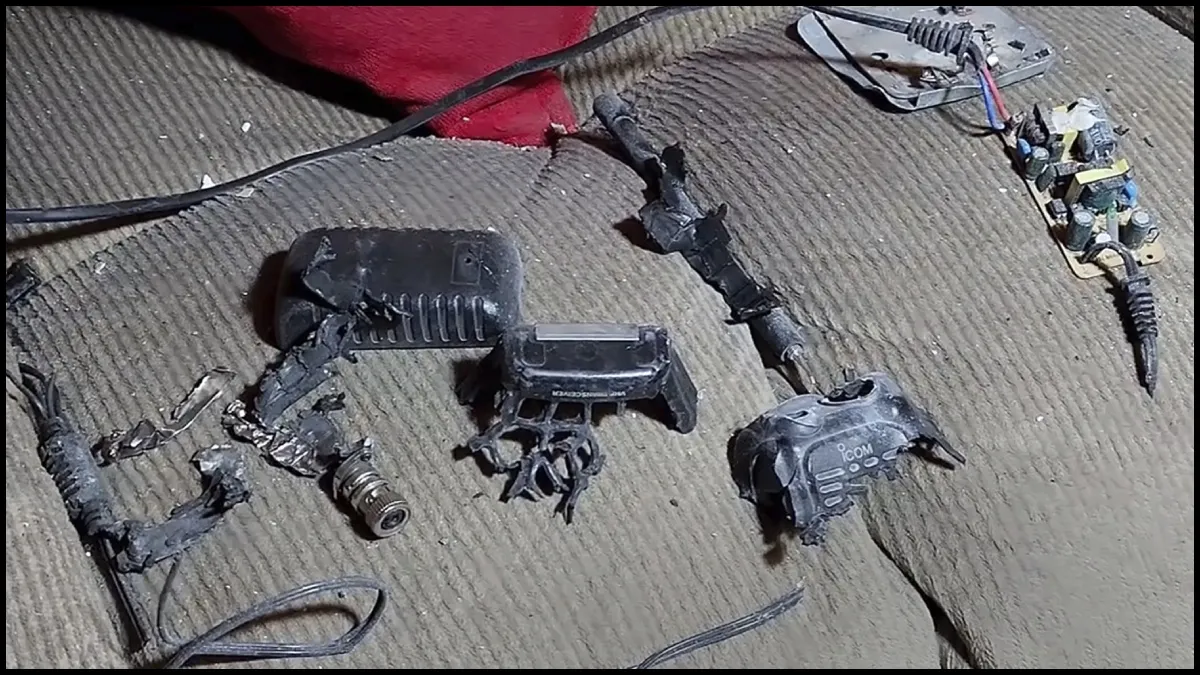Israel declares 'new phase' of war with Hezbollah as exploding walkie-talkies kill 20 in Lebanon
After thousands of pagers across Lebanon exploded on Tuesday and killed 12 people, the country was rocked again when walkie-talkies used by Hezbollah detonated on Wednesday. The incident has further stoked tensions between Israel and Hezbollah and raised the risks of an all-out war.

Jerusalem: Barely a day after Lebanon was rocked by thousands of pager blasts that killed 12 people, the Middle Eastern nation was rocked again on Wednesday when hand-held radios (walkie-talkies) and solar equipment used by the armed militant group Hezbollah detonated in the afternoon, killing 20 people and wounding over 450 others. This has further stoked tensions and raised the prospects of a wider war between Israel and Hezbollah since heavy fighting began a year ago.
While Israel was silent on the pager explosions on Tuesday, the Israeli military declared a 'new phase' of war on Wednesday as the walkie-talkie explosions rocked Lebanon. Speaking to Israeli troops on Wednesday, Israeli Defence Minister Yoav Gallant said, “We are at the start of a new phase in the war — it requires courage, determination and perseverance.” He made no mention of the exploding devices but praised the work of Israel's army and security agencies, saying “the results are very impressive.”
The declaration diminished hopes for a diplomatic solution to the conflict as Israel signals a desire to change the status quo in the country's north, where it has exchanged cross-border fire with Hezbollah since the Lebanese militant group began attacking last year on October 8, a day after the war between Israel and Hamas broke out when the latter launched an unprecedented attack on southern Israel.
War looming between Israel and Hezbollah
In recent days, Israel has moved a powerful fighting force up to the northern border, officials have escalated their rhetoric, and the country's security Cabinet has designated the return of tens of thousands of displaced residents to their homes in northern Israel an official war goal. It signals a possible shift in the war strategy between both sides, who had been careful to avoid an all-out conflict despite trading fire at the borders.
The change was visible in the last two days - as pagers, walkie-talkies, solar equipment and other devices claimed more than 30 lives and injuring over 3,200 people. "You don't do something like that, hit thousands of people, and think war is not coming. Why didn't we do it for 11 months? Because we were not willing to go to war yet. What's happening now? Israel is ready for war," said retired Israeli Brig Gen Amir Avivi, who leads Israel Defence and Security Forum, a group of hawkish former military commanders.
As fighting in Gaza has slowed, Israel has fortified forces along the border with Lebanon, including the arrival this week of a powerful army division that took part in some of the heaviest fighting in Gaza. The 98th Division is believed to include thousands of troops, including paratrooper infantry units and artillery and elite commando forces specially trained for operations behind enemy lines.
Israeli Prime Minister Benjamin Netanyahu has also signalled a "fundamental change in the security situation in the north" to a top US envoy. He told Amos Hochstein that while he "appreciates and respects" US support, Israel will "do what is necessary to safeguard its security." Public sentiment in Israel also seems to be supportive of tougher action against Hezbollah.
Hezbollah in 'unprecented' shock, disarray
On Wednesday, at least one of the blasts took place near a funeral organized by Iran-backed Hezbollah for those killed the previous day when thousands of pagers used by the group exploded across the country. Israeli officials have not commented on the blasts, but security sources said Israel's spy agency Mossad was responsible.
Hezbollah has been thrown into unprecedented disarray, with one of the officials calling the pager blasts as one of the "biggest security breach" the group has seen in decades. The explosion of thousands of pagers carried by Hezbollah fighters, medics and others sparked confusion and panic in the group known for military discipline and order. Some tossed away their devices as blasts echoed through Hezbollah-controlled areas of Beirut and other parts of Lebanon.
Hundreds of its fighters have been wounded, mostly in Beirut rather than frontline villages in southern Lebanon, a Hezbollah official said. Some have lost their sight or had their hands amputated, their attention having been drawn to their pagers by a buzzing sound before it exploded. Hezbollah turned to pagers and other low-tech communication devices in an attempt to evade Israeli surveillance of mobile phones.
Hezbollah, which has vowed to retaliate against Israel, said on Wednesday it attacked Israeli artillery positions with rockets, the first strike at its arch-foe since the pager blasts. "Hezbollah wants to avoid an all-out war," said Mohanad Hage Ali, deputy director of research at the Carnegie Middle East Center in Beirut. "But given the scale ... there will be pressure for a stronger response."
A full-blown war with Israel could devastate Lebanon, which has lurched from one crisis to another, including a 2019 financial collapse and the 2020 Beirut port blast. Hezbollah, Iran's most powerful proxy in the Middle East, said in a statement it would continue to support Hamas in Gaza and Israel should await a response to the pager "massacre."
(with inputs from agencies)
ALSO READ | Lebanon: 14 killed, over 450 injured after multiple walkie-talkies explode following pager blasts | VIDEO